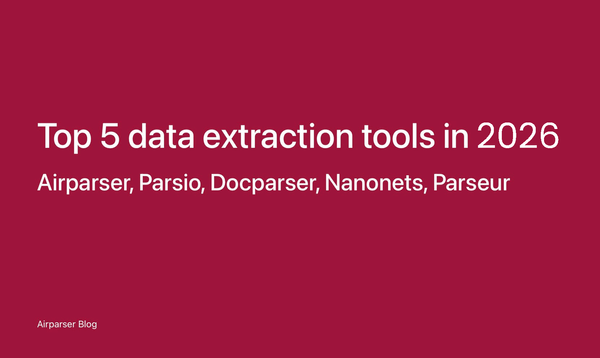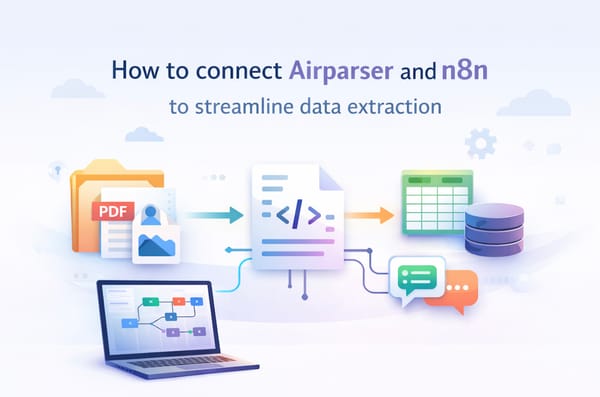What is a CV and resume parser?

CV and resume parsing technology revolutionizes how employers process job applications. This software automatically extracts and organizes key information from resumes and CVs, transforming unstructured data into a structured format. Resume parsing tools analyze text to identify crucial details like contact information, work experience, skills, and education, saving recruiters significant time in candidate screening.
Resume parsers are typically integrated into applicant tracking systems (ATS), enhancing the efficiency of the hiring process. These tools enable hiring managers to quickly search for specific keywords and qualifications across numerous applications. By automating data extraction and organization, parsers allow recruiters to focus on evaluating candidates rather than manually inputting information.
The technology behind CV and resume parsing involves sophisticated text analysis algorithms. These systems can handle various file formats, including PDF, DOC, and DOCX, extracting relevant data regardless of layout or design. As parsing technology continues to evolve, it promises to streamline recruitment processes and improve the overall candidate experience.
Understanding the Basics of CV and Resume Parsing
CV and resume parsing technology automates the extraction and analysis of candidate data from job application documents. This process transforms unstructured information into structured, searchable formats for more efficient recruitment.
Definition and Purpose of a CV/Resume Parser
A CV/resume parser is a software tool that automatically reads, extracts, and organizes information from job applicants' documents. It converts unstructured data from CVs and resumes into a standardized format that can be easily stored, searched, and analyzed.
The primary purpose of a parser is to streamline the recruitment process. It saves time by eliminating manual data entry and allows recruiters to quickly search for specific skills, experience, or qualifications across numerous applications.
Parsers typically extract key details such as:
- Contact information
- Work history
- Education
- Skills
- Certifications
Types of CV/Resume Parsers
There are two main types of CV/resume parsers:
- Keyword-based parsers: These identify specific words, phrases, and patterns within the text. They are simpler but less accurate, with an estimated 70% accuracy rate.
- AI-powered parsers: These use machine learning and natural language processing to understand context and extract information more accurately. They can handle various document formats and layouts more effectively.
AI-powered parsers often offer additional features like semantic analysis, which helps understand the meaning behind certain phrases or job titles. This allows for more nuanced candidate matching and searching capabilities.

How CV/Resume Parsing Software Works
CV/resume parsing software automates the process of extracting and organizing information from job applications. It uses advanced algorithms to analyze resumes and convert unstructured data into a standardized format.

Extraction of Information
The parsing software scans the resume document, identifying key elements like contact details, work history, education, and skills. It uses natural language processing and machine learning techniques to recognize different resume formats and layouts.
The software looks for specific keywords, phrases, and patterns to locate relevant information. It can distinguish between various sections of the resume, even if they're not clearly labeled.
For non-standard resumes, the parser employs contextual analysis to interpret the content accurately. This ensures that crucial details are not missed, regardless of the resume's structure.
Conversion to Structured Format
After extracting the information, the parsing software converts it into a structured format. This typically involves organizing the data into predefined fields or categories.
Common output formats include:
- XML (Extensible Markup Language)
- JSON (JavaScript Object Notation)
- CSV (Comma-Separated Values)
These formats make the data easily readable by other software systems and databases. The structured format allows for quick searching, sorting, and analysis of candidate information.
The software also standardizes certain data points. For example, it might convert all date formats to a single standard or normalize job titles for easier comparison.
Integration with Applicant Tracking Systems
Most CV/resume parsing software integrates seamlessly with Applicant Tracking Systems (ATS). This integration streamlines the recruitment process and enhances efficiency.
Key features of ATS integration include:
- Automatic population of candidate profiles
- Keyword search functionality
- Skill matching algorithms
- Resume scoring based on job requirements
The parsed data can be used to filter and rank candidates automatically. This helps recruiters quickly identify top prospects from large applicant pools.
Many ATS platforms allow customization of parsing rules to match specific organizational needs. This ensures that the extracted data aligns with the company's unique hiring criteria and processes.
The Role of Parsing Technology in Recruitment
Parsing technology revolutionizes recruitment by automating resume analysis and data extraction. It transforms how hiring managers handle job applications and streamlines candidate evaluation processes.

Benefits for Hiring Managers and Recruiters
Resume parsing software integrates with applicant tracking systems (ATS) to boost productivity. It quickly extracts key information from CVs, including job titles, skills, and work experience.
Hiring managers save significant time by avoiding manual data entry. The technology allows for faster candidate screening and more efficient shortlisting.
Parsed data enables easier comparison between applicants. Recruiters can quickly identify top candidates based on specific criteria or job requirements.
Parsing technology reduces human error in resume evaluation. It ensures consistent data extraction across all applications, promoting fairness in the hiring process.
Improving Candidate Experience with Efficient Processes
CV parsing simplifies the application process for job seekers. Candidates can often apply with a single click, uploading their resume without repetitive form-filling.
The technology enables faster application processing. This quick turnaround can lead to improved communication with applicants about their status.
Efficient parsing allows companies to handle larger volumes of applications. This increases opportunities for candidates to be considered for suitable positions.
Parsed data facilitates better matching between applicants and job descriptions. This can result in more relevant job recommendations for candidates.
Challenges in Adoption by Fortune 500 Companies
Large corporations face hurdles in implementing parsing technology across their recruitment systems. Integration with existing HR software can be complex and time-consuming.
Data security concerns arise when handling large volumes of sensitive applicant information. Fortune 500 companies must ensure robust protection measures are in place.
Parsing accuracy can vary across different resume formats and languages. This poses challenges for global companies dealing with diverse applicant pools.
Training staff to effectively use parsing technology requires investment. Companies must allocate resources for user adoption and ongoing system management.
Customization needs often arise to align parsing tools with specific industry requirements. This can lead to increased implementation costs and timelines for large organizations.
Advancing the Efficiency of HR Operations
CV and resume parsers revolutionize human resources processes by automating data extraction and organization. These tools significantly reduce manual workload and enhance decision-making capabilities in recruitment.
Streamlining the Recruitment Workflow
Resume parsing software extracts key information from applicant documents, transforming unstructured data into a structured format. This automation eliminates the need for manual data entry, saving HR professionals substantial time and effort.
Parsed data is seamlessly integrated into applicant tracking systems, creating searchable candidate profiles. HR teams can quickly filter and sort applicants based on specific criteria, such as skills, experience, or education.
The software's ability to handle multiple file formats ensures compatibility with various submission methods. This flexibility accommodates diverse applicant preferences and simplifies the application process.
Enhancing Job Matching with Keywords and Phrases
Resume parsers excel at identifying relevant keywords and phrases within applications. This capability allows HR teams to efficiently match candidates to job requirements.
The software can analyze job descriptions and compare them to parsed resumes, highlighting strong matches. This feature helps prioritize candidates who align closely with the position's needs.
Customizable keyword lists enable HR professionals to tailor searches to specific roles or industries. The parser's ability to recognize synonyms and related terms further improves matching accuracy.
By automating initial screening processes, resume parsers free up HR staff to focus on high-value tasks like in-depth candidate evaluation and interviews. This shift in focus leads to more productive hiring practices.
Key Considerations for Choosing a Parser Solution
Selecting the right CV and resume parser requires careful evaluation of several critical factors. These factors directly impact the effectiveness and efficiency of your recruitment process.
Ensuring ATS Compatibility and Accuracy
ATS compatibility is crucial when choosing a parser solution. The parser should seamlessly integrate with your existing applicant tracking system to ensure smooth data flow. Look for parsers that support various file formats like PDF, DOC, and DOCX.
Accuracy is paramount in resume parsing. High-quality parsers use advanced algorithms to extract and categorize information correctly. Test potential solutions with a diverse set of resumes to assess their accuracy across different formats and layouts.
Consider parsers that offer customization options. This allows you to tailor the parsing rules to your specific needs and industry terminology.
Evaluating Speed, Reliability and Support
Parser speed significantly impacts recruitment efficiency. Fast processing times enable quick candidate evaluations and reduce hiring delays. Benchmark parser performance with large resume volumes to ensure it meets your needs.
Reliability is essential for consistent operations. Choose a parser with robust error handling and regular updates to maintain performance over time.
Evaluate the level of technical support provided. Responsive customer service and comprehensive documentation can help resolve issues quickly.
Look for parsers that offer scalability to accommodate your growing recruitment needs. Cloud-based solutions often provide better flexibility and performance as your requirements evolve.
Advanced CV and Resume Parsing with Airparser

Airparser offers a powerful solution for processing CVs and resumes, designed to meet the needs of modern recruitment.
- Powered by GPT Technology: Airparser uses advanced GPT-based algorithms, allowing it to accurately process CVs and resumes in a variety of formats.
- Multilingual Capabilities: It supports multiple languages, making it suitable for international hiring.
- Cost-Effective: Airparser provides a comprehensive set of features at an affordable price, offering good value for companies of all sizes.
- Flexible Integration: With APIs, webhooks, and compatibility with over 6,000 apps via Zapier and Make, Airparser easily fits into existing HR workflows.
- Data Export Options: Users can export parsed data to Excel, Google Sheets, or other third-party software for further analysis or integration.
- Flexible Data Import: Airparser offers multiple ways to upload and process documents. Users can directly upload files, send email attachments, or integrate with systems using APIs, Zapier, or Make for seamless data flow.
- Multiple Document Formats Supported: Airparser handles various document types, including Word, PDF, email, and TXT, ensuring compatibility with most application formats.
Airparser is a reliable tool for organizations looking to streamline their CV and resume processing, with features that support efficient and accurate data extraction.




